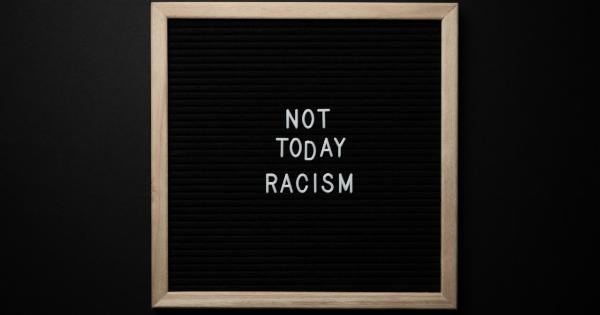Anxiety is a normal part of life; everyone experiences anxiety or fear at some point in their lives. It is a natural response to stress or a stressful situation.
However, when anxiety becomes excessive and starts interfering with your daily life, it could be a sign of an anxiety disorder.
Anxiety disorders are a type of mental illness characterized by excessive, persistent, and often irrational worry or fear about everyday situations.
The anxiety is severe enough to interfere with work, school, or social activities and can even make it difficult to carry out routine tasks.
The Different Types of Anxiety Disorders
There are several types of anxiety disorders, including:.
Generalized Anxiety Disorder (GAD)
GAD is characterized by persistent and excessive worry about a variety of everyday things such as health, finances, relationships, and work. People with GAD often experience physical symptoms such as muscle tension, fatigue, and irritability.
Social Anxiety Disorder (SAD)
SAD is characterized by intense anxiety and fear in social situations. People with SAD may avoid social situations altogether, and they may have physical symptoms like sweating, blushing, or trembling when they are forced to be in social situations.
Panic Disorder
Panic disorder is characterized by intense panic attacks that come without warning.
A panic attack is a sudden onset of intense fear or discomfort that can include symptoms like chest pain, shortness of breath, and feelings of being out of control or going crazy.
OCD (Obsessive-Compulsive Disorder)
OCD is characterized by repetitive, intrusive thoughts (obsessions) and actions (compulsions) that are time-consuming, stressful, and interfere with daily life.
People with OCD often engage in compulsive behaviors to reduce the anxiety caused by their obsessions.
The Causes of Anxiety Disorders
The causes of anxiety disorders are not fully understood, but there are several risk factors that may contribute to their development:.
Genetics
Research has shown that anxiety disorders can run in families, suggesting that genetics may play a role in their development.
Brain Chemistry
Anxiety disorders are associated with imbalances in brain chemistry, specifically with neurotransmitters like serotonin, norepinephrine, and gamma-aminobutyric acid (GABA).
Trauma
Experiencing trauma, such as abuse, neglect, or a major life event (such as a natural disaster or terrorist attack), can increase the risk of developing an anxiety disorder.
Certain Medical Conditions
Some medical conditions like heart disease, asthma, and thyroid problems can increase the risk of developing an anxiety disorder.
The Symptoms of an Anxiety Disorder
The symptoms of an anxiety disorder can vary depending on the type of disorder you have, but some common symptoms include:.
Excessive worry or fear
Anxiety disorders are characterized by excessive, persistent, and often irrational worry or fear about everyday situations.
Changes in behavior
People with anxiety disorders may avoid certain situations altogether, or they may engage in repetitive behaviors to reduce anxiety.
Physical symptoms
Physical symptoms like sweating, trembling, or chest tightness are common among people with anxiety disorders.
Sleep disturbances
People with anxiety disorders may have trouble falling asleep or staying asleep, or they may have nightmares.
Diagnosis and Treatment
If you believe that you have an anxiety disorder, it is important to seek help from a mental health professional. Anxiety disorders can be diagnosed through a combination of psychological and physical assessments.
Treatment for anxiety disorders typically involves therapy, medication, or a combination of both. Therapy can help you learn coping mechanisms and strategies to manage anxiety symptoms.
Medication can help alleviate symptoms and prevent them from becoming overwhelming.
How to Manage Anxiety
There are several things you can do to manage anxiety, whether you have an anxiety disorder or just experience anxiety from time to time:.
Exercise regularly
Exercise can help alleviate anxiety symptoms by releasing endorphins and reducing stress levels.
Meditate or practice relaxation techniques
Meditation and relaxation techniques like deep breathing and progressive muscle relaxation can help reduce anxiety symptoms.
Avoid caffeine and alcohol
Caffeine and alcohol can exacerbate anxiety symptoms, so it is best to limit or avoid them altogether.
Get enough sleep
Lack of sleep can increase anxiety symptoms, so it is important to make sure you are getting enough sleep each night.
Seek support
Talking to a trusted friend or family member can help alleviate anxiety symptoms and provide emotional support.
Conclusion
Anxiety disorders are a common mental illness that affects millions of people worldwide. If you believe that you have an anxiety disorder, it is important to seek help from a mental health professional.
With proper treatment and management, people with anxiety disorders can lead healthy, fulfilling lives.



























